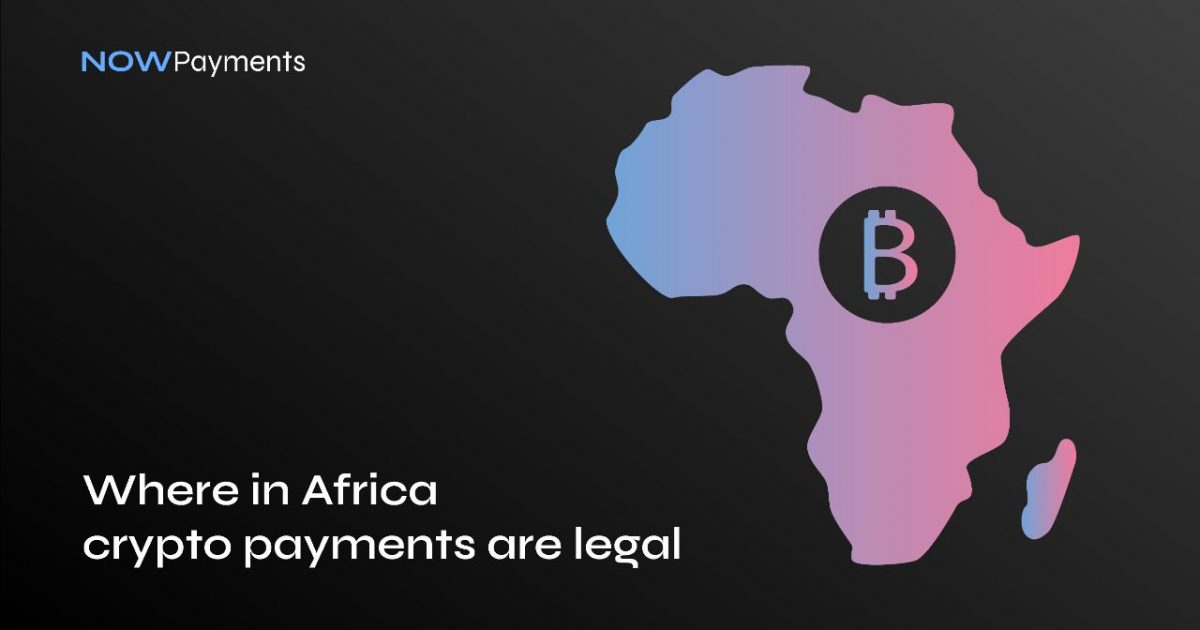Africa is one of the fastest-growing crypto markets in the world. Local residents, as well as business owners, actively use cryptocurrency for peer-to-peer payments, remittances, investments, and storage. We invite you to find out the main reasons that push African countries to mass adoption of cryptocurrencies and which countries have succeeded in this the most.
Key Points:
- Due to the harsh economic conditions, many African countries are open to cryptocurrency.
- Kenya, Nigeria, South Africa, and Tanzania are among the top 20 countries in the Global Cryptocurrency Adoption Index from Chainalysis.
- Depending on the specific state, crypto regulation in Africa varies.
What makes Africa a crypto-friendly region?
African countries have a huge potential to adopt cryptocurrencies. Now, this region accounts for only 3% of all crypto transactions in the world. Still, the total volume of crypto transactions has grown by 1200% over the past year, according to the Chainalysis report. There are several main reasons why residents of African countries are open-minded to cryptocurrency:
Unbanked population
According to The Guardian, more than 700 million of Africa’s 1,200 billion people do not have access to the banking system. And the sphere of financial services itself is very poorly developed. Financial service providers charge high fees for servicing customer accounts, which is simply beyond the means of most residents. As a result, Africans turn to cryptocurrency as it is a wonderful way to save and store their money. Due to the lack of access to banks, Africa is also the leader in retail peer-to-peer transfers: 7% versus 5.5% on average worldwide.
Remittance payments
Due to the low standard of living, many Africans are forced to leave the region and work in countries with more developed economies. Those who have left their country send remittances to their families. According to the Chainalysis report, more than $48 billion has been transferred as remittance payments to African countries, and this figure is steadily growing. However, traditional financial institutions impose enormous fees for international transfers, especially to African countries. In addition, some African countries also have limits on the volume of international transfers. Thus, migrants are forced to look for more cost-effective and faster ways to send funds. Again, cryptocurrency comes to the rescue.
Inflation
Many African countries are experiencing a high rate of inflation and, consequently, the devaluation of national currencies. Because of this, many Africans turn to cryptocurrencies to save their savings in conditions of high inflation and economic crises. For them, the volatility of cryptocurrencies is not so terrible. It is noteworthy that, for example, Nigerian youth and the conditional middle class prefer to insure their savings through the purchase of stablecoins, but wealthy people buy more volatile coins for these purposes, primarily Bitcoin.
International trade
It is cheaper and more accessible for local companies to use cryptocurrencies for settlements than to officially conduct a transaction through a bank: transactions with digital assets are faster and more profitable, plus no accompanying documents are needed. Moreover, some banks prohibit their business clients from transferring money to China, thus blocking a multimillion-dollar market. Therefore, African business owners benefit significantly from the introduction of crypto payments. Firstly, cryptocurrencies allow you to transfer funds with minimal fees. Secondly, crypto payments can be almost instantaneous, which is especially important for companies that depend on the cash flow for their business to function.
What countries are legal for crypto payments?
Nigeria
There is no specialized legislation on cryptocurrencies in Nigeria. Until recently, the authorities turned a blind eye to digital assets. But in February, the Central Bank banned the country’s commercial banks and other financial institutions from conducting operations related to cryptocurrencies and servicing crypto exchanges. However, payments with cryptocurrency are not technically prohibited. Nigeria is also among the top 20 countries in the 2021 Global Crypto Adoption Index, according to Chainalysis.
Kenya
Kenya is one of the most advanced countries in Africa in the field of crypto adoption. According to TripleA more than 8.5% of the country’s population uses cryptocurrency as a means of payment or investment. In addition, Kenya is a world leader in peer-to-peer trading. Moreover, the Central Bank of Kenya has stated that it will use Bitcoin as a reserve currency to solve the country’s economic problems.
South Africa
South Africa is the region’s leader in crypto regulation. In June 2021, the country adopted legislation recognizing digital currencies as financial assets. It obliges crypto exchanges to register with the regulator, comply with KYC/AML standards, identify users and report suspicious transactions.
Tanzania
Tanzania, along with Kenya, Nigeria, and South Africa, is among the top twenty countries in terms of crypto adoption. Thanks to cryptocurrency, a small settlement in Tanzania even managed to be turned into a smart village. In addition, the Vice-President of Tanzania, Samia Suluhu Hassan, calls on the country’s Central Bank to explore the potential of using cryptocurrencies and blockchain, as well as prepare for the possible introduction of cryptocurrencies into public circulation.
Namibia
Currently, there are no official regulations on crypto regulation in Namibia that allows the use of cryptocurrency as a payment. However, the Central Bank of Namibia has conducted an extensive study on cryptocurrencies, the results of which are expected in April 2022. Although the head of the central bank treats cryptocurrency well, however, he still warns about the possible risks associated with crypto trading.
FAQ
Conclusion
Under favorable conditions, African countries can become leaders in the growth rate of the crypto sector and potentially adopt digital currencies among their population. Admittedly, the African crypto market may seem insignificant: it is small, and there are no innovative projects that set the vector of development of the industry, but it is here that digital assets can become much more in demand than in the West or Asia.

